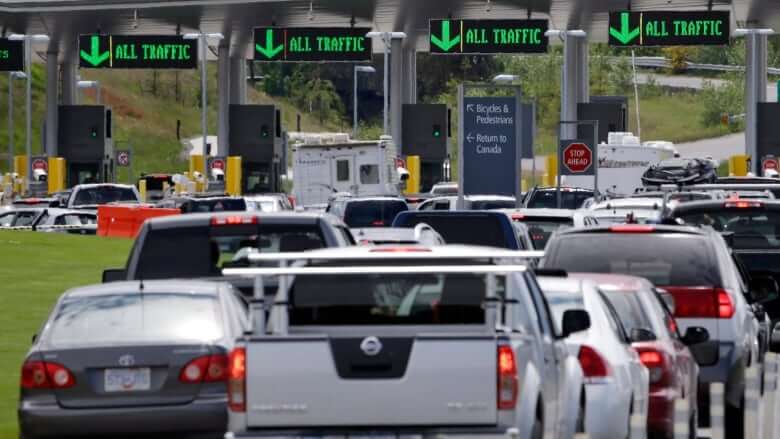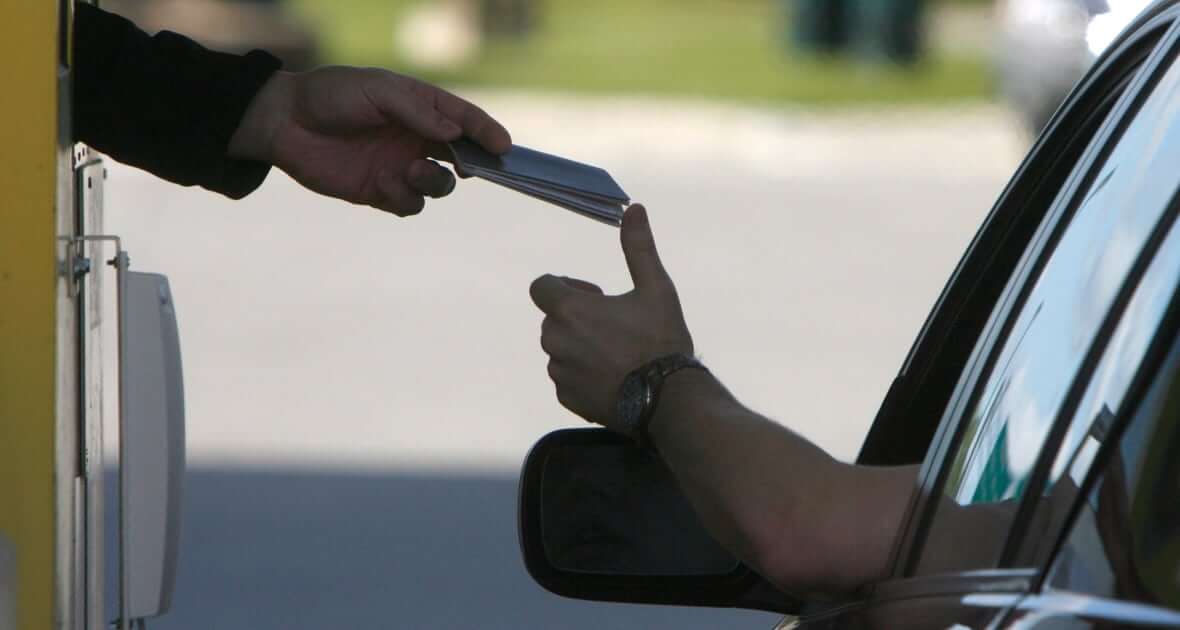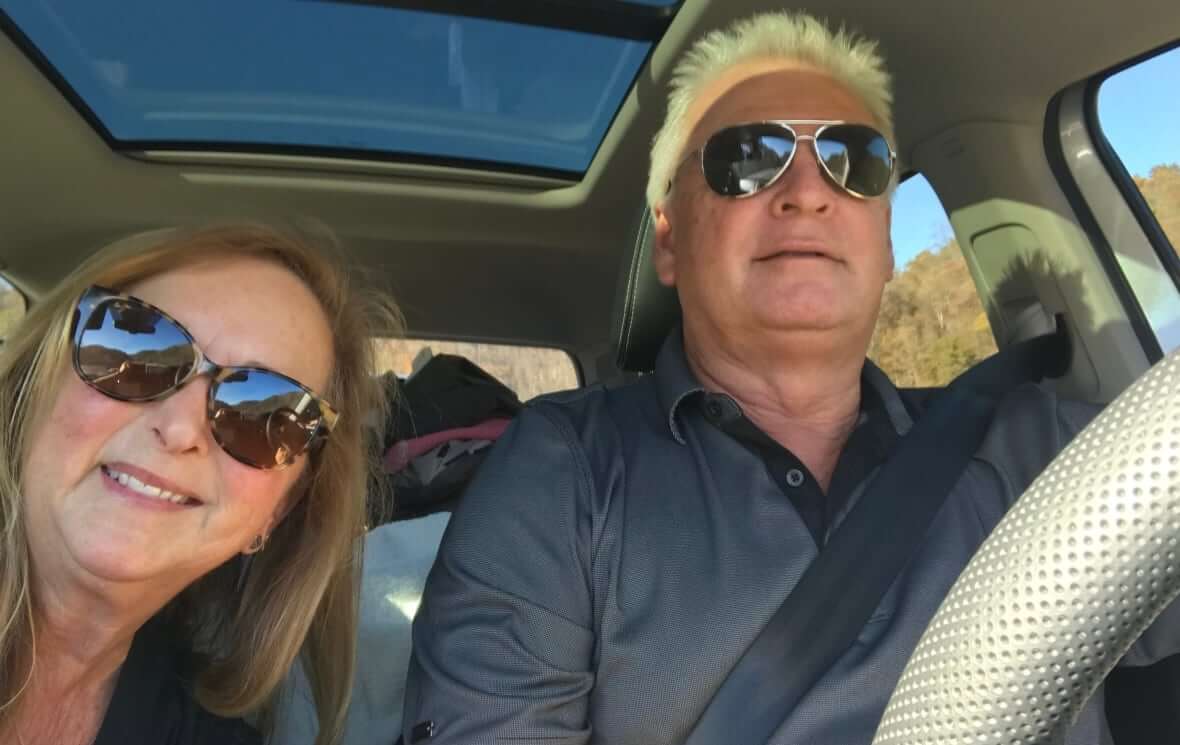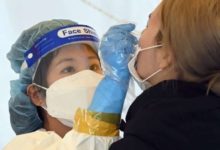The U.S. land border is open. Here’s what you need to know

It’s a day many Canadians have been waiting for: When the clock struck midnight on Monday, the U.S. land border reopened to fully vaccinated Canadian travellers following a 19-month shutdown.
The United States has kept its shared land border with Canada closed to non-essential travel since the start of the COVID-19 pandemic in March 2020.
But on Monday, the U.S. started welcoming back recreational travellers by land and passenger ferry — as long as those aged 18 and older are fully vaccinated against COVID-19. Younger travellers are exempt from the requirement.
Here’s everything you need to know about travelling to the U.S. — and returning home.
Random vaccination checks
U.S. Customs and Border Protection (CBP) says its border crossings will be staffed at pre-pandemic levels starting on Monday, but it warns there could be longer-than-normal wait times.
“For travellers making the trip to the United States, we ask for patience with our officers,” said Matthew Davies, the executive director, admissibility and passenger programs, with CBP. “To help reduce wait times and long lines, we encourage travellers to have the correct documentation ready.”
Travellers entering by land won’t have to show proof of a negative COVID-19 test, but they should be prepared to attest to their vaccination status and present their vaccination documentation upon request.
“We are going to ask you if you are fully vaccinated,” said Jeffrey Toth, program manager with the CBP’s Buffalo, N.Y., division. “You may be asked to provide proof.”

U.S. immigration lawyer Len Saunders questions why the U.S. has chosen not to automatically check all travellers’ vaccine documents.
“I think [it’s] ripe for abuse,” said Saunders, whose office sits close to the Canadian border in Blaine, Wash. “If they’re requiring people to be vaccinated, how hard is it to require someone to show their vaccination card?”
CBC News asked CBP why vaccination checks would only be sporadic. The agency didn’t directly respond to the question and instead said travellers’ vaccine documents will be checked if they’re pegged for further inspection.
If an officer discovers a traveller has no proof of vaccination, they will be denied entry to the U.S., the agency said.
Relief for Canadian travellers
In March 2020, Canada and the U.S. agreed to close their shared land border to non-essential travel to help stop the spread of COVID-19.
On Aug. 9, Canada reopened its land border to fully vaccinated Americans, while the U.S. remained silent on its border plans. That sparked anger and frustration among Canadians eager to drive to the U.S.
So when the U.S. announced last month it would reopen its land border on Nov. 8, many Canadians immediately started making plans.

Determined to get to Florida as soon as possible, snowbirds Shelton and Karen Papple of Brantford, Ont., drove across the U.S. border this morning.
“We are ecstatic,” Shelton Papple said from the road, on the couple’s way to Fort Myers, Fla., where they have a winter home.
Papple said a CBP officer checked their vaccination documents, and that they only had to wait about 20 minutes at the border before crossing.
“They had all kinds of lanes open. There was no traffic.”

Jeremy Lessard of Welland, Ont., is waiting until later in the month to cross the border. His fiancée, Tracy Czwojdak, lives in Buffalo, N.Y., about 40 kilometres from Lessard’s home. But due to the border closure, he hasn’t been able to make the 40-minute drive to Czwojdak’s house for 19 months.
Lessard plans to drive to Buffalo on Nov. 25, so he can celebrate American Thanksgiving with his fiancée.
“It’s just that little ray of light in an otherwise dark couple of years,” he said. “I’m very much looking forward to being able to get back to some normalcy.”
Canadians still need to take return test
When returning to Canada, all recreational travellers over the age of four must provide proof of a negative COVID-19 test taken within 72 hours of their return flight or planned arrival at the land border.
Canada will only accept a molecular test — such as a PCR test — which can cost hundreds of dollars.
Travellers crossing into the U.S. for short trips are allowed to take their molecular test in Canada and then use it upon their return — as long as it’s less than 72 hours old.
But travellers will still have to pay for the test, and some say the added fee just isn’t worth it.
Faye Chamberlain lives in Stanstead, Que., which shares a border with Vermont. She says that during pre-pandemic times, she used to cross into the U.S. several times a week.
Even though the land border has now reopened, Chamberlain says she won’t be returning to the U.S. for short trips.
“I’m definitely not going to cross for the day, not with having to get a test done, and it’s probably going to cost around $200,” she said.
“For me … it’s almost pointless,” Chamberlain said about the land border reopening.
Canadians who enter Canada without taking the test could be fined up to $5,000. According to the federal government, 1,708 travellers received such a fine.
Fully vaccinated Canadians entering Canada can skip Canada’s 14-day quarantine requirement. Unvaccinated children under the age of 12 can also skip quarantine, but they can’t attend school, camp, daycare or crowded settings for 14 days.
New U.S. air travel rules on Nov. 8
Since the start of the pandemic, recreational Canadian travellers have been able to fly to the U.S. But starting on Monday, they will face stricter rules.
Canadian air passengers entering the U.S. have been required to show proof of a negative molecular or antigen test no more than three days before their flight’s departure.
Beginning Monday, all foreign air travellers, with few exceptions, must also show proof they’re fully vaccinated.
Children under 18 will be exempt from the proof-of-vaccination requirement, but those between the ages of two and 17 will be required to show proof of a negative COVID-19 test.








Redes Sociais - Comentários